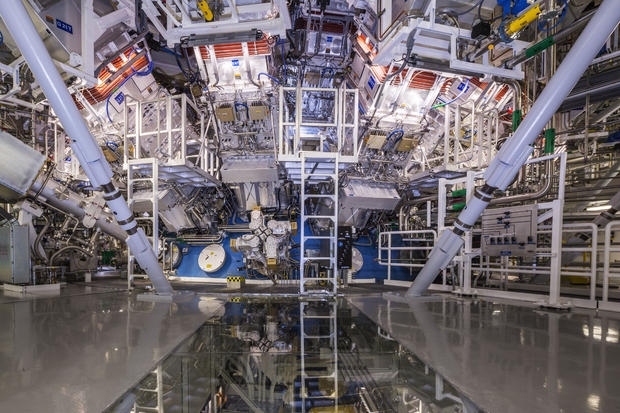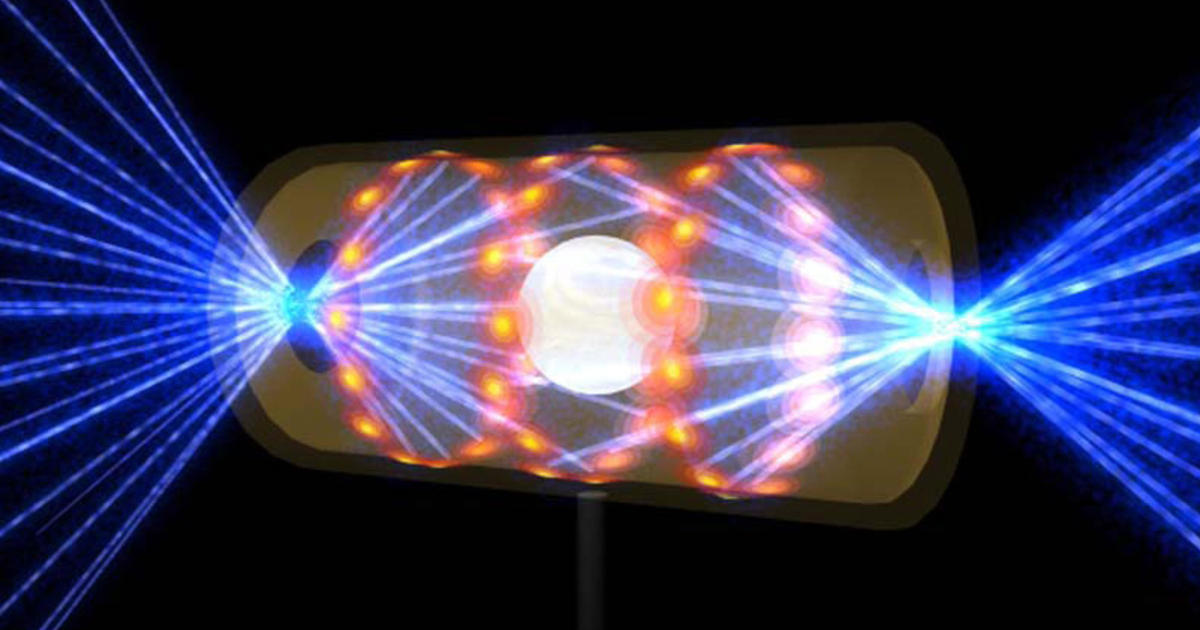U.S. expected to announce major breakthrough in quest for zero-carbon nuclear fusion energy
Washington — The U.S. Department of Energy said Sunday it would announce a "major scientific breakthrough" this week, after media reported a federal laboratory had recently achieved a major milestone in nuclear fusion research. The Financial Times reported Sunday that scientists in the California-based Lawrence Livermore National Laboratory (LLNL) had achieved a "net energy gain" from an experimental fusion reactor.
That would represent the first time that researchers have successfully produced more energy in a fusion reaction - the same type that powers the Sun - than was consumed during the process, a potentially major step in the pursuit of zero-carbon power.
Energy Department and LLNL spokespeople told AFP they could not comment or provide confirmation regarding the FT report, but said US Energy Secretary Jennifer Granholm would "announce a major scientific breakthrough" on Tuesday.

The LLNL spokesperson added that their "analysis is still ongoing."
"We look forward to sharing more on Tuesday when that process is complete," she said.
The fusion reaction that produced a 120% net energy gain occurred in the past two weeks, the FT said, citing three people with knowledge of the preliminary results.
The Washington Post later reported two people familiar with the research confirmed the development, with a senior fusion scientist telling the newspaper, "to most of us, this was only a matter of time."

Nuclear fusion is considered by some scientists to be a potential energy of the future, particularly as it produces little waste and no greenhouse gases.
"If this fusion energy breakthrough is true, it could be a game changer for the world," tweeted Ted Lieu, a member of Congress from California.
Fusion differs from fission, the technique currently used in nuclear power plants, by fusing two atomic nuclei instead of splitting one.
The LLNL fusion facility is the size of three football fields and consists of almost 200 lasers which bombard a tiny spot with high levels of energy to initiate a fusion reaction.
As CBS News' Haley Ott discovered earlier this year, the quest to harness the power of nuclear fusion for clean energy has led to one of the biggest, longest running collaborative science experiments in the world – an experiment which, like the LLNL project, has taken on new expediency given the global energy crisis.
Ott visited the multibillion-dollar fusion project known as ITER — which means "the way" in Latin and is short for "International Thermonuclear Experimental Reactor" in southern France this year, where 35 countries are working together to try and crack the same scientific riddle that the U.S. is working on at LLNL unilaterally.
Some of the participating countries in the ITER project — which include the United States, Russia, China, India, South Korea, Japan, and the nations of the European Union — are frequent collaborators, but some are major adversaries on the world stage.
Russia's invasion of Ukraine has prompted an unprecedented barrage of sanctions against Moscow from some partner nations, for example, and in response, Moscow has restricted its natural gas supplies to Europe, exacerbating the energy crisis.
The international science experiment was born out of an attempt to cool tensions between the United States and the Soviet Union during the Cold War, and the joint project has continued despite the ongoing tension between not only the U.S. and Russia, but also China, which is also involved.
In March, the White House announced a plan to accelerate fusion's commercial development over the coming decades through continued investment in ITER, and through domestic projects like that underway at the LLNL facility. The White House heralded in the spring fusion's "potential to revolutionize the energy industry, helping combat the climate crisis while meeting the growing electricity needs of the U.S. and the world."

U.S. expected to announce major breakthrough in quest for zero-carbon nuclear fusion energy
Rep. Ted Lieu of California said if the announcement this week is what's expected, "it could be a game changer for the world."
